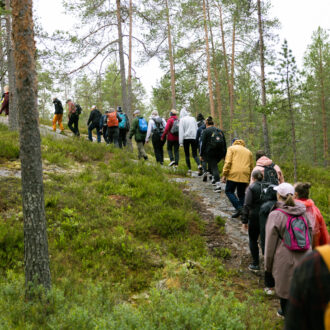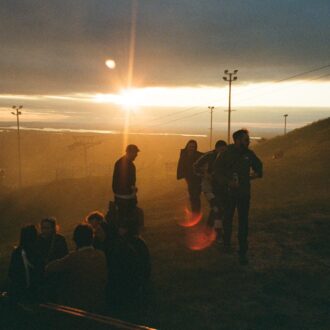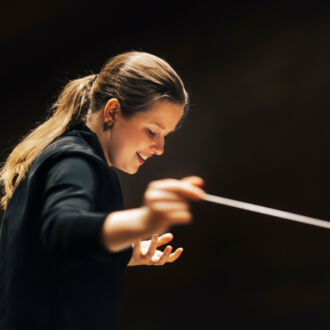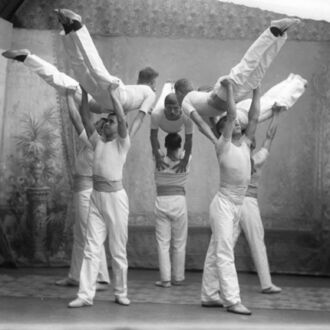Our first group call stretches late into the afternoon.
Eighteen-year-old Erkki Virkkala has just woken up at home in Kaustinen and apologises for feeling groggy, while on the other side of town, 16-year-old Iikka Huntus is puffing his way up a ski slope, working as a camp leader at a youth retreat.
It’s June, yet summer feels like it hasn’t really begun. Everything still lies ahead.
These young men, still young enough to be called boys, laugh about why anyone would want to write about them at all, before settling into conversation.
The second time we connect in July, it is almost by chance, but this time, they’re doing what they do best: playing music.
Virkkala and Huntus aren’t rocking out on guitar and drums as you might expect lads their age to do (though they do play those, too). Instead, they are performing Finnish folk music on fiddles.
Soon after, I come across a newspaper article about them. They’ve won the prestigious Konsta Jylhä competition, named after one of Finland’s most famous folk composers, and earned high praise from the judges.
Finally, I meet them in person, with time to talk properly, and most importantly, hear them play.
Musical roots run deep
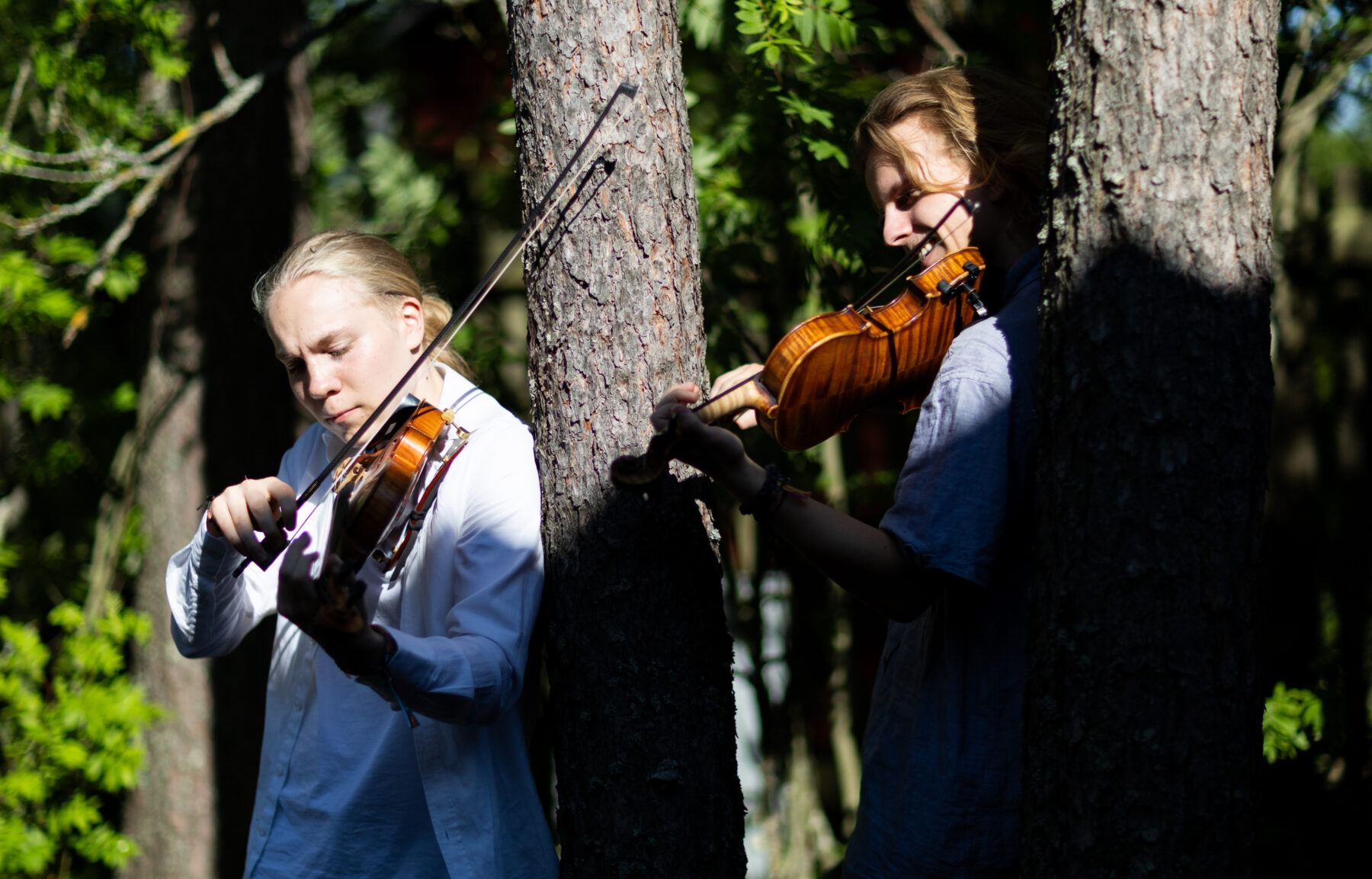
Iikka Huntus and Erkki Virkkala believe music should be fun and more about playing than performing. For them, it’s all about enjoying the moment.
It felt inevitable.
If your parents, aunts, uncles, grandparents, and generations before them have all been musicians for as long as memory serves, what else could you imagine doing as an adult?
Virkkala picked up the fiddle at the age of three or four. A year later, he began lessons with his grandfather Mauno Järvelä, a respected fiddler and teacher who developed the Näppäri method – a group-based approach that uses folk music to make playing accessible and enjoyable for children. The method has inspired thousands in Finland and abroad to discover music without the pressure of auditions or exams.
In a nearby village, young Huntus also began playing fiddle before starting school, inspired by his father’s fiddle playing.
Still, for both boys, music lessons could still be stressful if they hadn’t practised. Yet with their parents encouraging them, quitting was never really an option.
The spark for music came when they finally met each other in the same youth orchestra in the early 2020s. Virkkala’s mother was Huntus’s fiddle teacher and thought the boys might click.
Their first meeting wasn’t even about music – they cooked tortillas together – but soon fiddles found their way into their hands. No need to discuss what to play: folk music had surrounded them since birth.
Something just clicked.
From then on, playing became not only fun but the very best thing.
Blending tradition with innovation
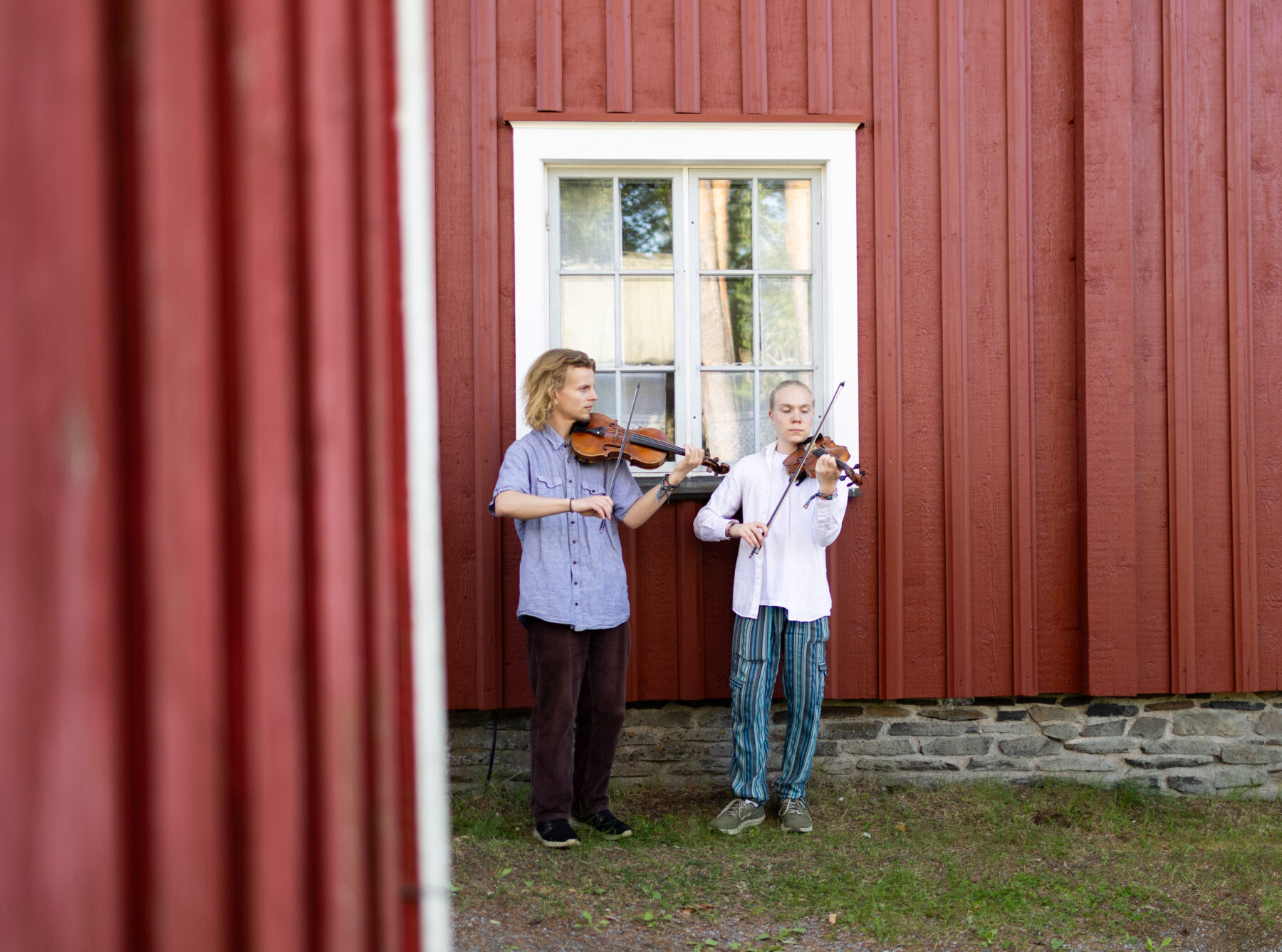
In addition to their duo, the boys perform in numerous other groups, including Ottoset. At the week-long Kaustinen Folk Music Festival, they both played over 30 gigs.
“Your turn.”
“No, your turn.”
At the interview, Huntus and Virkkala banter like old friends, finishing each other’s sentences.
Their first duo concerts were in summer 2023 at the Kaustinen Folk Music Festival – the largest folk music event in the Nordic countries. The gigs were a hit, and more followed. Virkkala and Huntus mostly play traditional pelimanni tunes, but arrange them in their own style.
Their sound often features a fast tempo and hints of classical music. For example, at the Konsta Jylhä competition, they were tasked to play pieces by the late pelimanni composer, arranged in their own way:
“We had a crazy performance,” Virkkala says.
“There were lots of classical music shades, Swedish folk influences, and jazz. The faster parts sometimes sounded like Kaustinen, sometimes like bluegrass, with lots of playful experimentation. We tried everything we could get out of the instrument.”
A relaxed attitude
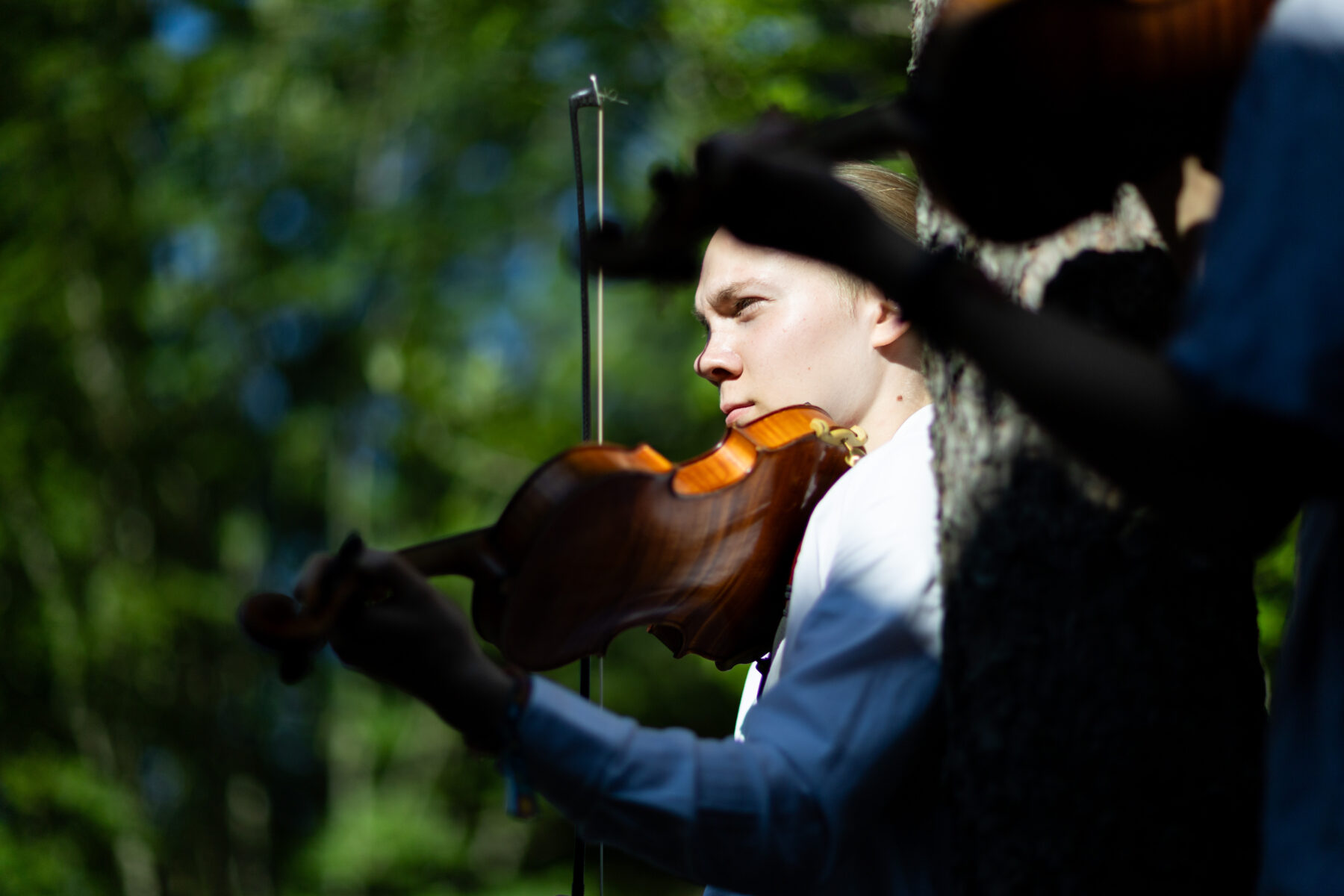
“Anyone, from anywhere, can communicate through music,” says Iikka Huntus.
If Kaustinen fiddle playing and pelimanni music don’t sound familiar, don’t worry. The style may not be as well known as, say, flamenco. Yet.
Kaustinen, with just 4,000 inhabitants in Central Ostrobothnia on Finland’s west coast, is renowned for its fiddle playing.
For centuries, fiddles have accompanied weddings, funerals and celebrations in between. Today, hundreds of people of all ages keep the music alive, from elders to youngsters like Virkkala and Huntus.
In 2021, the Kaustinen folk fiddling style was added to Unesco’s Intangible Cultural Heritage list, which also includes Finnish sauna culture and, through multinational applications, glassblowing and clinker boats.
While many traditions are kept alive by the elderly, hundreds of people of all ages in Kaustinen play folk music, youngsters like Virkkala and Huntus, included.
Erkki Virkkala and Iikka Huntus perform their own arrangement of Konsta Jylhä’s “Olutmarssi” (Beer March).
The boys are skilled musicians, but there’s a laidback vibe to everything they do. If they could pass down one thing from their generation to the folk music world, it would be ease and playfulness instead of serious, goal-oriented playing.
Their attitude might be called the “kassothan” (“let’s see how it goes”) approach.
“Maybe the song works at the gig, even if it didn’t at rehearsal,” says Virkkala.
“It’s not that serious. Let’s see.”
Looking ahead: music is the future
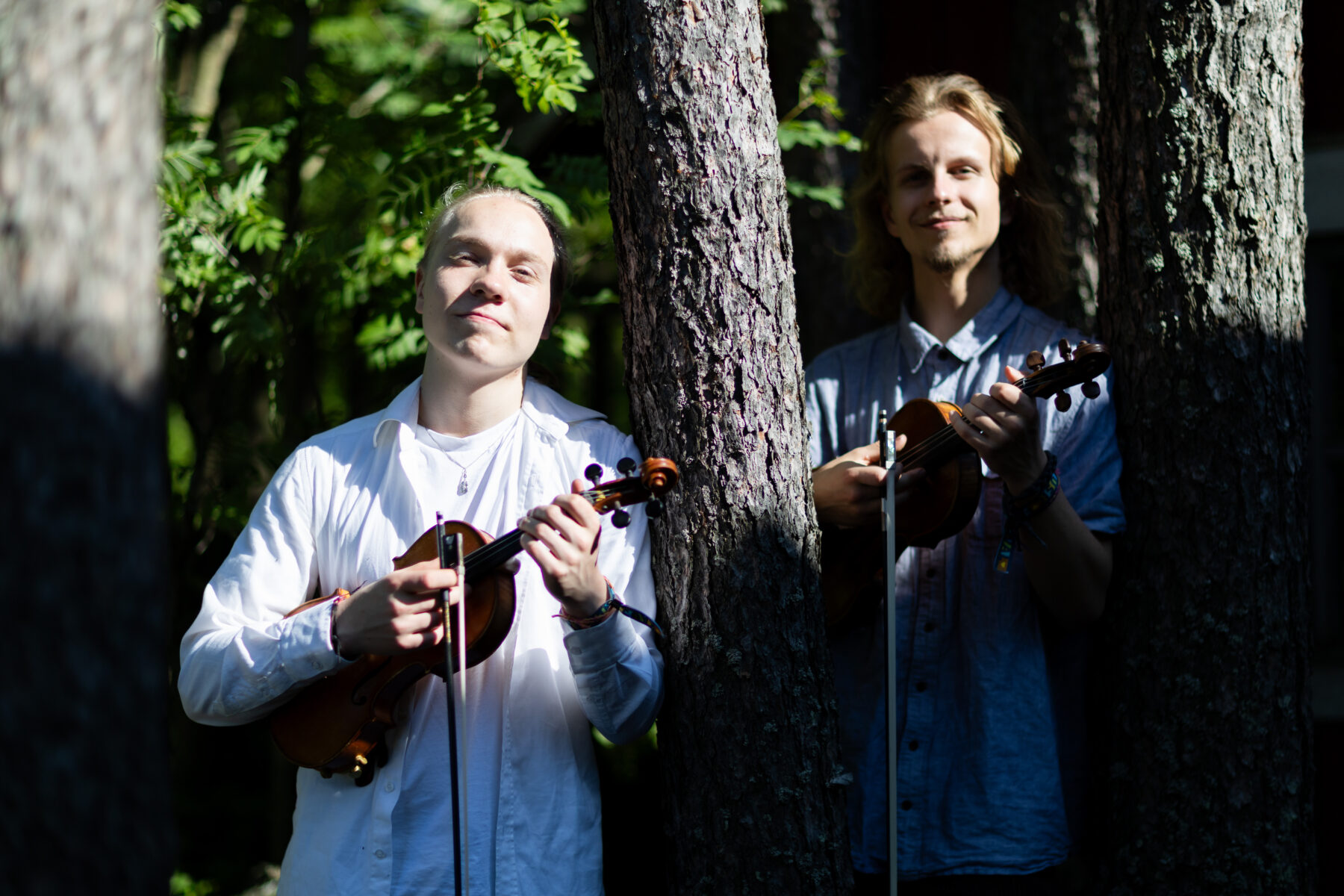
“The best moments are when the music just flows and your best mate is right there beside you, having a conversation through the instruments,” says Huntus.
What does it feel like to have your entire life, work, and home already decided for you? If you’re born into a pelimanni family in Kaustinen, chances to break free are slim.
“Sometimes when I play, I think about how strong my roots are here,” says Huntus.
“I’m grateful for how I’ve grown into this world.”
“Sometimes it feels unfair for others who want to play, but for me, it’s been made so easy,” adds Virkkala.
Today, both are glad their parents pushed them to take lessons when they were younger.
When I first asked about their future plans in the beginning of this summer, Huntus was cautious, while playing music was already a given for Virkkala.
Later, Huntus seemed at peace with his path:
“It feels very certain that I’ll be making music. Unless a meteor hits the earth, then maybe not.”
And what’s the best part about playing and this whole journey?
“The diversity of music, the aha moments, and composing,” Huntus says.
“The different feelings you get when you play or listen to music. And the chance to play around with sound as a form of expression,” Virkkala adds.
Finally Huntus adds something that seals the story:
“Well, playing together with Erkki. That’s the best.”
Text, photos and video by Emilia Kangasluoma, September 2025
Follow the boys’ musical journey on Instagram.
